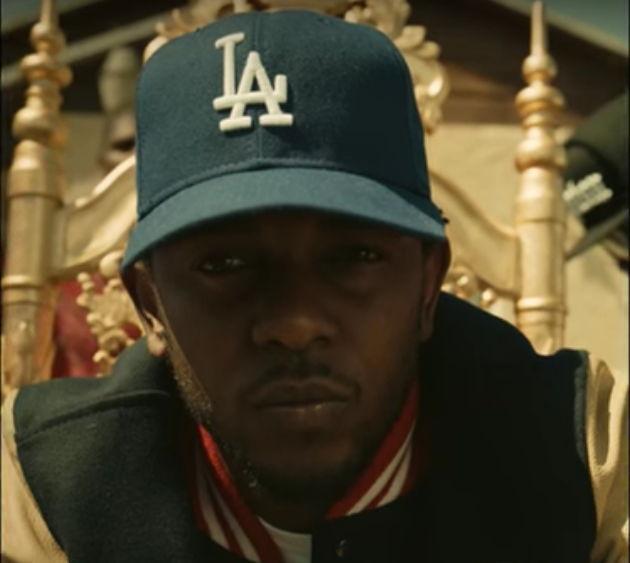Kendrick Lamar is his generation’s greatest rapper (sorry, Drake!). The Compton MC blends searing socio-political themes with acrobatic flows for a style that’s both visceral and cerebral. It’s a neat trick, and one that he’s refined over the past 10 years, culminating in 2017’s DAMN. Here, we collect his 15 best verses from the last decade.
15. “Rigamortus,” Section 80, 1st Verse
“Rigamortus” was the moment when K Dot got dap from the hip hop traditionalists. Before this track, he was just another blog rapper of the late aughts, selling out shows to college kids largely off 2DopeBoyz love. After “Rigamortus,” he’d settled a question that kept message boards up at night: “Can he RAP though? Like really RAP?” Yes. Yes, he can.
14. “Collard Greens,” Schoolboy Q’s Oxymoron, 2nd Verse
Kendrick’s own releases are usually pretty high-stakes. Every polysyllabic rhyme, intertextual allusion, narrative twist, and surprise ending is intentional, and the result is a dense, lean-in experience that demands close attention. However, on “Collard Greens,” his friend Schoolboy Q’s breakout 2014 hit, Kendrick sounds comparatively relaxed, as if he’s taking a post-good kid victory rap, trying out his Spanish, rhyming “touché” with “toupée,” and doing a decent Nicki Minaj impression.
13. “Money Trees,” good kid m.A.A.d. city, 2nd Verse
This may be the most unassuming verse on the list, but it reflects a key element to Kendrick’s appeal: his relatability. Here, in a voice unencumbered by his usual rap gymnastics, he serves up slices of street life with casual elegance: “Pull off at Church’s with Pirellis skirtin’/ Gang signs out the window, ya bish/ Hopin’ all of ‘em offend you, ya bish/ They say your hood is a pot of gold/ And we gon’ crash it when nobody’s home.”
12. “Duckworth,” DAMN., 1st Verse
“Duckworth” offers a rare glimpse into the origin story of Kendrick’s boss and mentor, TDE founder Anthony “Top Dawg” Tiffith. Kendrick traces Tiffith’s history from a childhood spent with a crackhead mother where he was “meant to be dangerous” to an early adulthood in a gang. The verse ends with Tiffith contemplating but ultimately deciding against murdering a man named Ducky, which proves fortuitous, “Because if Anthony killed Ducky/ Top Dawg could be servin’ life/ While I grew up without a father and die in a gunfight.”
https://youtube.com/watch?v=TFNJhfNeW8M
11. “Nosetalgia,” Pusha T’s My Name is My Name, 2nd Verse
Kendrick frequently intercuts landmark moments in West Coast rap with fragments from his own upbringing, lending new significance to both. On “Nosestalgia,” he drops references to Boyz N Da Hood and Debo from Friday, shuffling those with more quotidian snapshots of growing up in Compton when you’re not an outright killer: fiends buying your Sega Genesis from your aunt; your dad selling those same fiends fake dope; your little brother helpless and crying, all while living in a war zone where trigger fingers always itch.
10. “Backseat Freestyle,” good kid m.A.A.d. city, 3rd Verse
Kendrick is conceptualist first, a stylist second, and a lyricist third, so when he prays that “my dick get big as the Eiffel Tower,” you shouldn’t take it at face value: He’s playing the character of a 16-year-old, with all that age’s attendant foolishness. And while he spends large swaths of this album reconciling that moral recklessness, the third verse here is a study in vocal poise, with Kendrick’s jerky, growling flow speeding up, stopping, pivoting, and doubling over itself, adding up to a masterfully controlled performance by the world’s best rapper.
9. “Bitch Don’t Kill My Vibe (Remix),” ft. Jay-Z, 2nd Verse
Just in case there were any lingering doubts, Kendrick silenced all the haters, rappers, and industry mudslingers on the remix for one of his most successful tracks to date. It’s his first “I’m here” rhyme, wherein he acknowledges the success of good kid, flexing his pen to reiterate its impact. Jay’s verse is fearsome, but Kendrick leaves no doubt about who came harder: “I am the bad, the good God, the last the hood got/ The last that would try to pass a good job/ If Shawn’s a black Beatle then I need a ten second solo/ Bitch see you at Woodstock.”
8. “Lust,” DAMN., 2nd Verse
DAMN. very much exists in a post-Trump world. You can hear it in the weariness and anger of Kendrick’s voice, and in the album’s dazed, woozy takes on pop, R&B, and trap. On “Lust,” he recreates the collective hangover felt on November 9th. He wakes up “in a trance” with his “head spinning from the last night,” and he tunes into the news, ”sad, distraught, and mad.” The track captures the disorientation, disbelief, and sadness of that day, while the final twist — where “time passes, things change” and we revert “back to our daily programs” — adds a resigned conclusion.
7. “P&P,” Overly Dedicated, 1st Verse
Conceptually, “P&P” is a precursor to “Swimming Pools,” prescribing Patron and our current President’s favorite term for the female anatomy as alternatives to contemplating death, unemployment, and undeserved beatings. The track is a flip of The Roots’ “Clock With No Hands” off the dour and punishing Game Theory — not exactly drivetime radio fare and likely the reason it failed to Trojan Horse itself onto frat party playlists like its counterpart did two years later.
6. “Blacker the Berry,” To Pimp a Butterfly, 1st Verse
The song starts in a riot: Hard drums and discordant synths set the mood. In the first verse, Kendrick declares, “I’m African American,” immediately amending that to, “I’m African/ Black as the moon/ Heritage of a small village.” Later, he charges, “You sabotage my community, makin’ a killin/ You made me a killer/ Emancipation of a real nigga.” It’s unsettling and violent. Kendrick seems intent on burning it all down, though later verses reveal his answer isn’t that simple.
https://youtube.com/watch?v=dGGCx-RrKg8
5. “Alright,” To Pimp a Butterfly, 1st Verse
If nothing else, this may be the best hip-hop track that begins with a conjunction (“And when I wake up…”). But the song achieves liftoff with the second verse, where Kendrick’s flow cartwheels across Pharrell’s wispy synths, and the lyrics warn of the enticing but crippling temptations of late-capitalist consumer culture (“Motherfucker, you can live at the mall”), making this one of the more self-interrogative civil rights anthems.
4. “good kid,” good kid m.A.A.d. city, 2nd Verse
“good kid” is about surviving among animals when you don’t have teeth. Kendrick leaves Bible study and gets tested by gang bangers, contemplates suicide, and romanticizes the “grown up candy” that is hard drugs. But on the second verse, he breaks down his long, stressed out dealings with the law that harken back to Ice Cube: Being the good kid doesn’t fly when you “look the part” of a criminal in the worst part of town.
https://youtube.com/watch?v=GNpXogUiYnU
3. “m.A.A.d. city,” good kid m.A.A.d. city, 1st Verse
Kendrick stated that “m.A.A.d.” stands for “My Angel’s on Angel Dust” and “My Angry Adolescence Divided,” and this song explains both: He hits his first blunt, which is laced with coke, he plots a robbery, and he accepts being surrounded by known murderers — all before being allowed to vote. “m.A.A.d. city” is about how being vulnerable and introspective can get you killed just as quickly as the wrong gang affiliation, so you have to bury that side and adapt. Pretty soon, you don’t even flinch when someone gets their head blown off in front of you.
2. “Blacker the Berry,” To Pimp a Butterfly, 3rd Verse
If the first verse was a riot, then this one is war in the streets. It’s the ending of Do the Right Thing, it’s a boiled over version of Kanye’s “Black Skinhead.” It’s Ice-T’s “Colors,” or a lost verse from 2pac’s Strictly 4 My N.I.G.G.A.Z. It’s the enraged answer to Trayvon Martin, Eric, Garner, Michael Brown, and countless others. “I’m black as the heart of a fucking Aryan/ I’m black as the name Tyrone and Darius/ Excuse my French but fuck you/ No fuck y’all/ That’s as blunt as it gets!”
1. “King Kunta,” To Pimp a Butterfly, 3rd Verse
With allusions to Alex Haley’s runaway slave, Ralph Ellison’s “yams,” and MLK’s 20 million oppressed, the song is as a panorama of American tragedy, and while Kendrick conjures everything from the middle passage to the prison industrial complex, this is ultimately a triumphant tale. For Kendrick, the political is personal, and adversity provides the fuel for empowerment. Compton is the center of the universe, and Kendrick, of course, reigns as the “motherfuckin’ king.”





